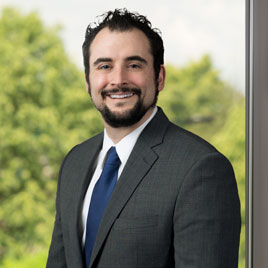Car insurance plays a crucial role in protecting drivers and their finances after an accident. It provides financial support for medical bills, lost wages, and car repairs. However, a recent Michigan Supreme Court decision in Williamson v. AAA of Michigan highlights the importance of honesty throughout the entire claims process, from filing the initial claim to navigating potential lawsuits.
Case in Point: Unveiling Deception in the Claims Process
The case centered around Charles Williamson, who unfortunately sustained injuries in a car accident. Since he lacked personal car insurance coverage, he turned to the Michigan Automobile Insurance Placement Facility (MAIPF), a state entity that helps individuals obtain coverage in such situations. After his passing, his daughters pursued a claim for no-fault personal injury protection benefits (PIP) on his behalf. However, during the legal proceedings, a concerning detail emerged. Williamson's estate submitted documents claiming he received caregiving services after his death. This blatant attempt to deceive the system through false information constitutes fraud.
The Court's Decision: Closing the Loophole on Fraudulent Claims
The Michigan Supreme Court issued a critical ruling in this case. They determined that statements made during a lawsuit can be considered fraudulent if their intention is to secure Personal Injury Protection/Personal Protection Insurance (“PIP”) benefits through the MAIPF and Michigan Assigned Claims Plan (“MACP”). This decision is significant because it closes a potential loophole that some might have exploited. Previously, there might have been a perception that making false claims during litigation would not have consequences. The Court's message is clear and unequivocal: honesty is expected throughout the entire process, right from the initial claim filing to navigating a lawsuit, if necessary.
Why This Decision Matters: Protecting Fairness
This ruling serves as a victory for fairness and transparency throughout the entire claim including litigation. It discourages fraudulent activity and punishes bad behavior.
Key Takeaways for Car Accident Victims: Maintaining Honesty Throughout the Claims Process
- Be truthful from the very beginning. This applies from the initial filing of the claim to any interactions you have with the MAIPF and insurance companies assigned to handle those claims through the MACP, including during a lawsuit.
- Don't attempt to manipulate the system. Submitting false information can lead to a denied claim and potentially even legal repercussions.
- Seek Guidance from an Attorney. If you have any questions or uncertainties about the claims process, consulting with an experienced lawyer is highly recommended. An attorney can provide valuable guidance and ensure you're filing your claim accurately and honestly.
Additional Considerations: Maintaining a Fair and Honest System
Here are some additional points to consider for those with their own insurance as well as those filing claims with the MAIPF and making statements to the insurance companies assigned to handle those claims through the MACP:
- Understanding Your Rights and Responsibilities as a Policyholder: Familiarize yourself with the terms and conditions of your insurance policy. This knowledge will help you understand your rights and responsibilities when filing a claim.
- Transparency in Communication: Maintain open and honest communication with your throughout the claims process. Provide accurate and complete information to avoid any misunderstandings or delays.
- Seeking Professional Help When Needed: If the claims process becomes complex or you face any challenges, don't hesitate to seek help from a qualified attorney specializing in car insurance claims.
By following these tips and adhering to the principles of honesty and transparency, car accident victims can ensure they receive the financial support they deserve while maintaining the integrity of the insurance system for everyone.



